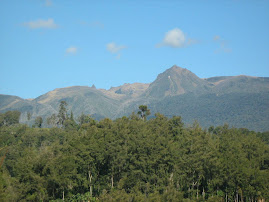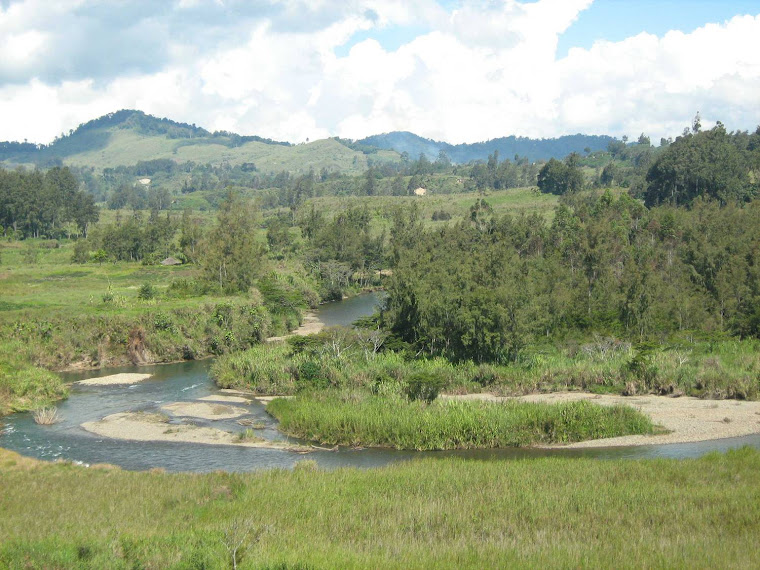
Caption:China’s space technology reached a new milestone after the successful return of astronauts, Zhai Zhigang, Liu Boming and Jing Haipeng to earth on Sunday 30th landing on the grassland of inner Mongolia after four days in space, a great achievement for China. (China Daily)
2008: The Special Year for China
2008: The Special Year for China
By Mathew Yakai, Changchun, China
YEAR 2008 marks a special moment for all Chinese, both in and abroad.
China feels the momentum of pride, despite all the set backs that it faces.
What is impressive is the current rapid economic growth which am directly benefiting as a student in China under the Chinese Scholarship.
In the Pacific, islanders always complain on things they can afford.
School fees, for example. Current and the successive governments should build roads, create markets, and encourage people to engage in farming to sell their produces….and create employments for the graduates.
The economic equation is then complete. There is a means and an end, people have ways to earn money and spend. One does not need to ask a Member of Parliament or the government to provide school fees or help transport the dead relative.
The governments failed in the past by providing “freebies”.
Look at Australia’s welfare system that corrupts many young Australian female students, into pregnancy out of wedlock.
Research has shown that third or fourth generations of single mothers are living together, depending on the Federal Governments welfare system. This system convinces young female Australians to think that it is okay for them to get pregnant without completing school as that system will feed them.
The system also gets many Australian Aborigines drunk and sleep on the streets in major cities. Most of their children do not go to school.
Oceania has adopted this cult mentality, and always looks upon the government. Islanders are so lazy, sitting under the “coconut tree expecting the ‘dry coconut’ to fall”.
Unless one climbs the tree or there is a strong wind, the “dry coconut” will never fall.
Malaysia and Singapore governments provide commodities that people can not afford. Rest is up to the people with government’s assistance. How about China?
Li Teng is a Business Economics student at Jilin University. His parent is a farmer. He has one younger brother.
He comes from Sichuan Province in China, the province that experienced the devastating earth quake on May 12, 2008.
I invited him for a week to tell me about his family and village life and feel what life was like when he was a young boy compared to today since China marks it 30th Anniversary of opening up and economic reform this year.
.
When he was a small boy, his parent would earn less then 5000 Chinese Yuan (K1,860.00) per year. The money was sufficient for them, though it did not come easily. They had to work tirelessly in the field.
Li said, they never had electricity and water. In a month they would have shower for two or three. All their village roads were muddy during rainy days.
Li’s parent did not want to see him on the farm like them so they worked extremely hard and sent him to school. Today he is attending one of the top ten universities in China, Jilin University.
Li is the only student from his village to enter the highest and renowned university. He is the pride of his family and the village.
Currently doing his final year undergraduate, Li opened a shop close to Jilin university and brought his younger brother to manage, while he looks for other business opportunities. Last time he told me that he gave up the idea of looking for a job and wanted to venture into business.
The story is long, and interesting. But the essence of this introduction is this. After the opening up and economic reform in 1978, China’s economy grew impressively, providing opportunities for young entrepreneurs to venture into businesses.
Li does not want to work with a company or government, but wants to establish his own business because the Chinese government is providing the economic and political environment.
In the Pacific, most people will not live longer to see this, or never at all, if the governments do not learn from countries like China.
China and its people cry together, laugh together and inspire together this year.
This reminds me of Chinese President Hu Jintao’s word after the deadly Sichuan earthquake, "I firmly believe that no difficulty can daunt the Chinese people.”
I applauded with my colleagues in my room when the Shenzhou-VII crew capsule landed on the Inner Mongolia steppe on Sep 28.
The successful Shenzhou-VII mission is really exciting news for China to lighten the National Holiday on Oct 2.
In 2008, the eyes of the world are on China. China fought against natural disasters, China hosted the Olympics, and China walked in space.
Personally, I am so proud of this country and happy that I am here to experience by going through all the joys and pains in 2008.
I watched the opening gala in my room with a Japanese friend. We were astonished by the show that was masterminded by Chinese filmmaker Zhang Yimou.
On Aug. 8, the start of the Olympic Games was hailed by Time Magazine (Asia edition) in its "Beijing 8/8/08" cover story published on Aug. 18 as an event that "heralded the return of China to the center of the world's stage."
Peter M. Herford, the former producer of the U.S. show "60 Minutes" who is now a guest professor teaching journalism at Shantou University in south China's Guangdong Province, said "the opening was the single event that impressed the outside world more than others. So many aspects of China came together."
"And more that, the use of state-of-the-art tools to produce the spectacle underlined China's modern infrastructure in a way no other event could have accomplished," Herford said.
Herford added that the year 2008 was certainly the "Year of China" and "other events of 2008 cannot take away from the joy of the Olympics."
Earlier this March, the riot in Tibet's capital Lhasa led to the deaths of at least 18 civilians and one policeman. During the overseas legs of the Olympic flame relay, particularly in France, Tibetan separatists and their supporters, protested for an "independent Tibet" and grappled with torchbearers.
All these unexpected disturbances, not to mention the May 12 earthquake which has been the worst natural disaster for China in the past 30 years, shadowed the nation's preparation for the Olympics, but China's resolution to host a successful Olympics was not disturbed.
China made it a sporting and spectacle success. Whatever attitudes other countries may have towards China, they are watching the Olympics and caring about China.
During the Olympic season, I watched on TV the events like weight-lifting, basketball, the Chinese diving queen Guo Jingjing, American swimmer Michael Phelps and Jamaican athlete Usain Bolt. Keeping close watch on the Games became as regular as having meals every day.
It was all about Olympics, wherever you are. People I met on the streets, both foreigners and Chinese, were either watching or talking about the Olympic Games.
I donated 500 yuan (K185.) towards the disastrous Sichuan Earthquake that killed more than 69,000 people in the country.
I know the money is only a drop in the ocean, but millions of people like me were doing the same thing, and together we made a difference.
China used 'unity is strength' as its slogan to get over the disaster, and it did it.
The 8.0-magnitude quake erupted without any warning on May 12. Professor Herford said the government was impressive in its organization of relief efforts and China showed the world how people could come together to help those in need.
“The volunteers were a phenomenon that impressed many with the Chinese commitment to help their fellow citizens," Herford said.
I experienced several earthquakes in PNG, but the one in China was beyond my imagination.
People all over the country became so connected after the quake happened. The government was quick to act, money was collected in short time, and makeshift houses were built soon. The army, doctors and volunteers were quick too.
At 2:28 p.m. on May 19, exactly a week after the quake, when all sirens and horns wailed and people stood for three minutes in silence to mourn tens of thousands who died in the quake, I was in class, praying in my hearth, “God bless the deaths, and comfort those survived.”
Emotional support and financial aid came from both home and abroad. Domestic and foreign donations exceeded 8.6 billion U.S. dollars in cash and goods. Some overseas Chinese even rushed back from abroad to help with relief work in quake-hit areas.
I was, for the first time, overwhelmed by the nation's indomitableness and fortitude to unite and fight. Somehow, I feel lucky I am going through whatever happens in China.
While having scored tremendous achievements in the past decades, China has also been going through many trials, especially in 2008.
Take the recently-revealed toxic milk scandal for example. It challenges the reputation of "made-in-China" products. Premier Wen Jiabao admitted at the World Economic Forum recently that the country was weak in the production supervision process, but "we will try to ensure that all China-made products are safe for consumers."
Confucius said 2,500 years ago that a man should be independent at the age of thirty. Li, at the age of "independence", is starting his own company, which is very important to him.
"Problems always exist, both for the country and individuals, but we are brave enough to move forward. This year we cry together, we laugh together, and we are all inspired," Li said.
At his home town, his parents today earn good money, have electricity and water in their new house and all roads are sealed.
His kind parents invited me to go with Li during the winter holiday, and I am looking forward to meeting his humble parents, who have never seen a foreigner before, according to Li. May be the whole village, he jokingly admitted.
China’s 30th anniversary of opening and economic reform celebration is for good reasons, while in PNG and Oceania, the countries ares still staggering behind.
If PNG and Oceania have to experience economic prosperity then look no further then China, because the traditional western powers have done nothing.
The 19th century historian Thomas Carlyle famously wrote, “The history of the world is but the biography of great men.”
So, the history of PNG and Oceania lies with current leaders.








